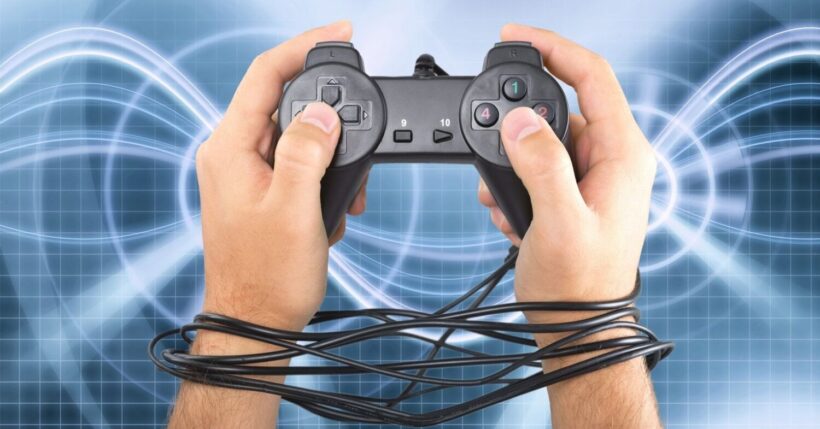Gaming has become an integral part of modern culture, offering a wide array of experiences ranging from casual mobile games to immersive virtual reality worlds. However, as with any form of entertainment, it’s important to understand the psychological implications of gaming, particularly in terms of knowing when to take a break or walk away. This blog post delves into the psychology behind mindful gaming, providing insights and strategies for maintaining a healthy balance.
The Allure of Gaming: Understanding the Hook

With its ability to provide an escape from reality, a sense of accomplishment, and social interaction, gaming captivates millions of people worldwide. But the same features that draw players in can also encourage compulsive gaming.
The Reward System in Our Brain
Games is expertly designed to tap into the brain’s reward system. Each level passed, enemy defeated, or achievement unlocked triggers a release of dopamine, a neurotransmitter associated with pleasure and reward. This dopamine release can create a cycle of continuous play, as the brain seeks out these rewarding experiences.
Escapism and Social Connections
Many turn to games for escapism – a way to disconnect from the stresses of daily life. Games provide a controlled environment where players can experience success, control, and adventure. Additionally, online games offer social connections, allowing players to build communities and friendships. This social aspect can make it harder to step away, as players become invested in their online communities.
Recognizing the Signs: When Gaming Becomes Too Much

Understanding when it is becoming detrimental to one’s life is crucial. It’s essential to recognize the signs and take action to restore balance.
Impact on Daily Life
Excessive gaming can start to impact daily life. This might manifest as neglected responsibilities, strained relationships, or declining physical health. When it starts to take precedence over important aspects of life, it’s a clear sign that one needs to reassess their habits.
Emotional and Physical Signs
Over-gaming can also lead to emotional and physical symptoms. Feelings of irritability, restlessness, or anxiety when not playing can indicate dependence. Physically, one might experience fatigue, headaches, or discomfort from prolonged sitting and screen time. Recognizing these signs is the first step toward mindful gaming.
Strategies for Mindful Gaming
Adopting strategies for mindful gaming is essential to enjoy the benefits without the negative repercussions. These strategies help create a balanced approach to playing.
Setting Boundaries and Goals
Setting clear boundaries and goals can prevent excessive gaming. This might include limiting time, setting specific days, or choosing games that promote short sessions. For example, engaging in an online platform like Crazy Vegas Online Casino can be scheduled for specific times, ensuring that gaming remains a leisure activity and doesn’t overrun other aspects of life. It’s also beneficial to set goals outside of it, such as fitness targets or social activities, to encourage a diverse set of interests.
Mindfulness and Self-Reflection
Practicing mindfulness can help gamers stay aware of their habits and emotions. Regular self-reflection on habits and their impact can lead to more conscious choices. This mindfulness can help gamers recognize when it’s time to step away and engage in other activities.
Walking Away: Knowing When and How

Knowing when and how to walk away from gaming is crucial. It involves recognizing the need for a break and having strategies to successfully disengage.
Recognizing the Need for a Break
Listening to one’s body and mind is key to recognizing the need for a break. This might be physical tiredness, mental fatigue, or simply a feeling of being too engrossed. Acknowledging these signs and acting on them is vital for healthy habits.
Strategies for Disengaging
Developing strategies for disengaging from gaming can make the process easier. This might include planning alternative activities, engaging in physical exercise, or setting an alarm as a reminder to take breaks. Having a support system, such as friends or family, who understand the importance of balanced playing can also help.
The Role of Game Developers
Game developers play a significant role in promoting mindful playing. Their design choices can influence how players interact with games and how easy it is to take breaks.
Designing for Balance
Developers can design games that encourage balanced play. This might include features that remind players to take breaks, gameplay that doesn’t penalize taking time off, or narrative designs that don’t encourage endless play. Encouraging a healthy culture can benefit both players and the industry.
Promoting a Healthy Gaming Environment
Game developers can also promote a healthy environment through community guidelines, educational campaigns, and support for players who may struggle with addiction. By taking a proactive role, developers can help ensure that it remains a positive and enjoyable part of life.
Embracing Variety: The Importance of Diversifying Gaming Experiences

Diversifying one’s experiences is crucial for maintaining a healthy relationship with playing. Exploring different genres and types of games can prevent the monotony and potential addiction associated with sticking to one game or genre.
The Benefits of Genre Exploration
Exploring different genres can be refreshing and eye-opening. It introduces players to new challenges, narratives, and ways of thinking. For instance, switching from fast-paced action games to strategy or puzzle games can offer a more relaxed pace, reducing the likelihood of overstimulation and addiction. This variety not only enriches the experience but also helps in developing a broader skill set and perspective.
The Role of Non-Digital Games
Incorporating non-digital games, like board games or outdoor sports, into one’s routine can also provide a healthy balance. These games encourage physical activity, social interaction, and a break from screens, contributing to overall well-being. They also offer a unique form of entertainment and challenge that can complement digital experiences.
Conclusion: The Path to Mindful Gaming
Mindful gaming is about finding the balance between the enjoyment of gaming and the responsibilities and joys of everyday life. By understanding the psychological aspects of gaming, recognizing the signs of excessive play, and adopting strategies for balance, gamers can enjoy the benefits of gaming without negative consequences. Game developers also have a role to play in supporting this balance. Ultimately, mindful gaming is about making conscious choices that lead to a healthy, balanced lifestyle.
